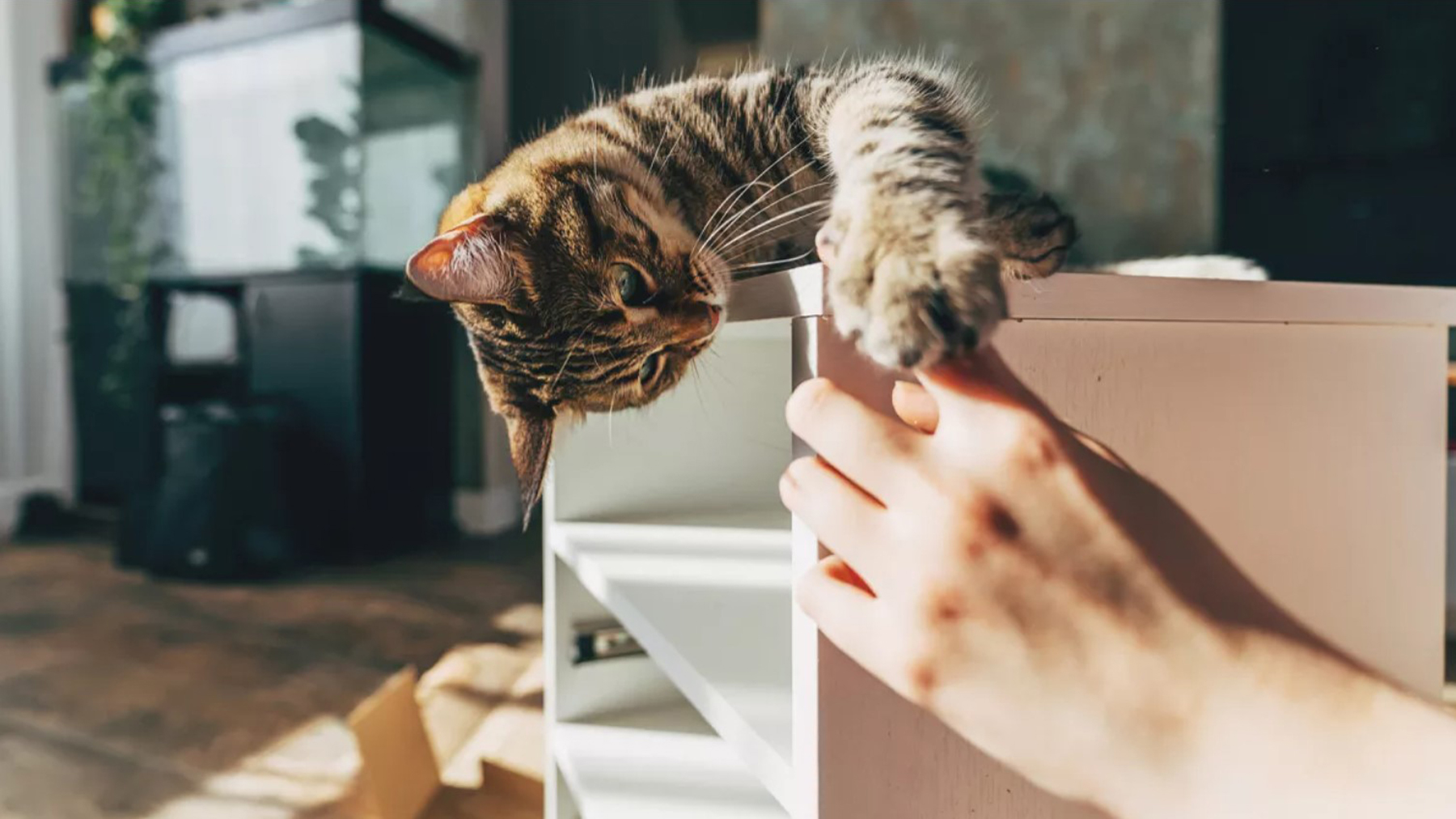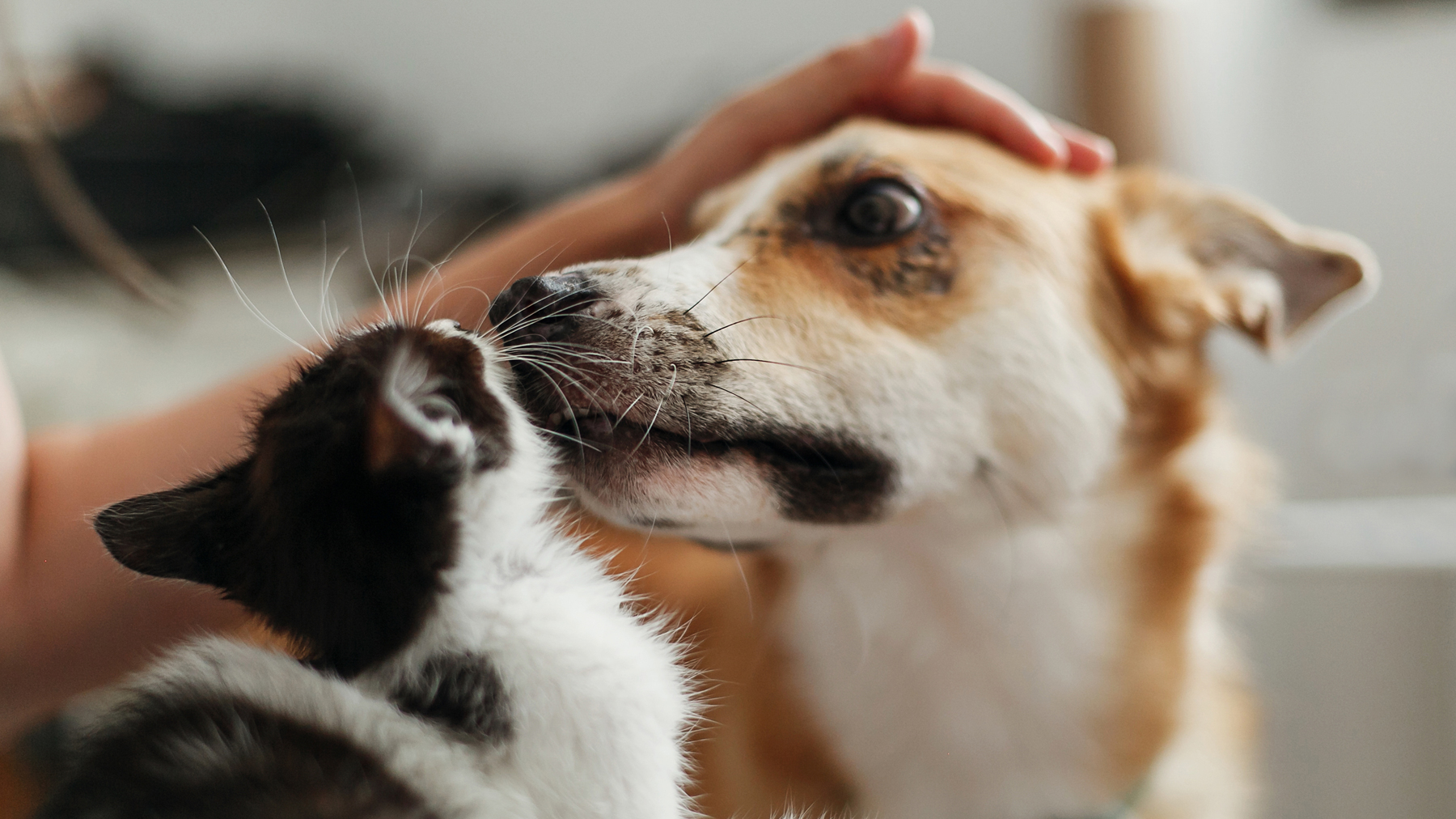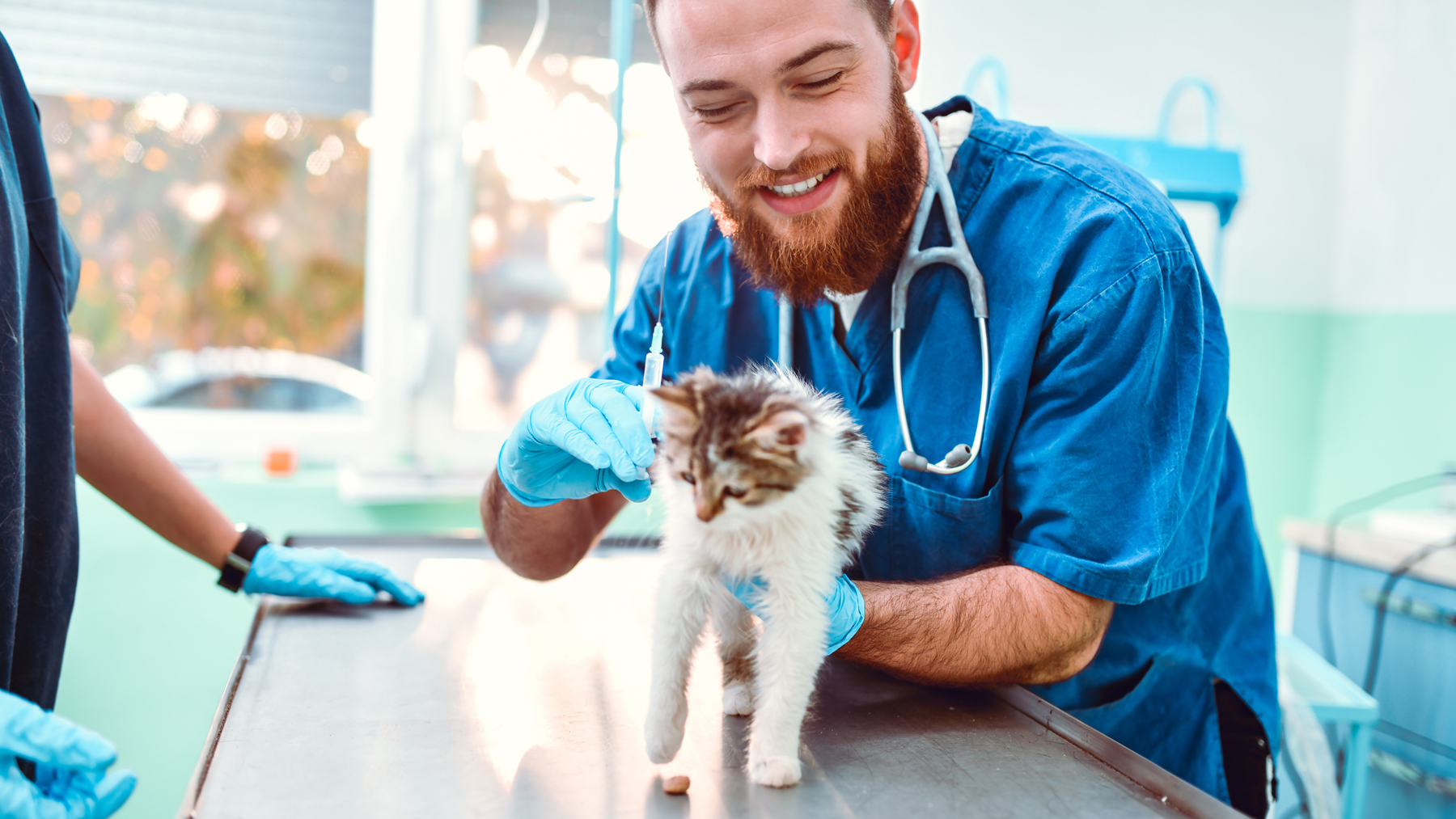How to prepare for a cat
Vet reveals everything a new cat owner should consider from food and equipment, to healthcare and finances

Are you considering bringing home a new feline family member and wondering how to prepare for a cat? While adopting a cat or kitten is a decision of the heart, if you want to feel prepared, ensure that the rehoming goes as smoothly as possible, and keep them as healthy as possible, there’s plenty to think about.
Owning a cat for the first time comes with lots of unique challenges (just ask all those pet parents out there who are wondering why does my cat scratch the wall or pee outside the litter box?), not to mention quite a shopping list.
You might find yourself lugging litter trays, scratch posts, and cat bowls from the pet store, wondering what you were thinking! That’s without considering the best cat toys, cat food, cat litter, and lots more. Of course, with so much to buy alongside insurance and preparing for veterinary costs, it’s important to be sure that owning a cat fits in with your household finances too.
If you do decide that owning a cat is right for you, right now, then we’ve got all the information you need to help you prepare for your four-legged friend’s arrival.
How do you prepare for a cat?
With so much to do to prepare for your new addition, it's easy to feel overwhelmed, but don't worry, your new feline friend will be worth all the organization!
Before you head off to the store to buy the items that you need, there are a few things you should consider. Firstly, check out your local veterinary clinics and the services they provide, and choose the one that suits you best. You might want to pop in to chat with the staff and ask some questions about the registration process, vaccinations, neutering, and costs. If you already know the details of the kitty that's joining your family, you can register their details.
You’ll also want to consider where your new addition will spend their time. It’s a good idea to restrict them to one room initially, to help them settle in and allow gradual introductions to children and other pets. If you’ve already got a dog, you might be concerned about whether the two of them will get on.
Although it’s important to supervise your cat and dog closely as you learn how to introduce a new dog to your home, a study of cat and dog behavior published in the PLOS One Journal suggests that they can be relaxed living together and that dogs may be more likely to try to make friends with the cat, whereas the cat is more likely to ignore (or tolerate) the dog!

What are the essential items you need for a cat?
Below you’ll find a checklist of essential items you will need to care for and prepare for a cat:
Cat food
Your cat's diet should contain all the vitamins, minerals, protein, carbohydrates, and fats that your cat needs to keep them healthy.
Different types of cat food come with benefits and drawbacks, and sometimes the evidence or owner experience is conflicting – for instance, dry cat food is much better than wet cat food when it comes to a cat's oral health, but the low water content in dry food may be a drawback, especially in cats with urinary or kidney problems. What is clear, though, is that homemade diets created without the direct input of a qualified veterinary nutritionist pose a risk of nutritional deficiencies and imbalances, as outlined in an article published in the Journal of Feline Medicine and Surgery.
Litter box and cat litter
A litter box is essential if you are going to own a cat. A good rule of thumb is to have one more litter box than the number of cats you have to prevent competition or stress. There are lots of different styles available, and your cat might show a preference for a covered or an uncovered litter box.
However, one comparative study in the Journal of Feline Medicine and Surgery suggested that the most important factor is cleanliness, and as long as litter boxes are kept clean, most cats show little preference. Don’t forget, inside the litter box you’ll need some cat litter, and again you may find that your future cat prefers woodchip, gravel, clumping, or non-clumping.
Somewhere to sleep
When you bring home your cat for the first time, they're bound to feel nervous and insecure. It's a good idea to provide them with a comfy and enclosed bed where they feel safe, which you can place in a quiet part of the house. As they find their feet in your home, they may decide they prefer to sleep on the couch or your bed, though!
Cat toys
It's important to have a range of the best cat toys available for your cat to play with, and ideally, they would encourage different types of play, including puzzles, pouncing, kicking, and chasing.
Scratch posts
Cats need to scratch with their claws to keep them well-maintained and to mark their scent. Scratching also allows them to stretch their muscles, a little like cat yoga! Your cat might prefer to scratch a mat, a cat tree, or a raised scratching board, and it's a good idea to have a few options available to them if you don't want them experimenting with your furniture! Here are some of the best scratching posts to help you begin your search.

What should you do with a cat on the first night?
On their first night, your cat might feel particularly insecure, which might mean some meowing or restless behavior through the night. You might find that they sleep better in a crate bed in your room, where they are reassured by your presence. Remember, though, cats are most active at dawn and dusk and don't necessarily sleep all night, so keeping them enclosed all night might mean less sleep for you!
Over the years I’ve seen plenty of exhausted cat parents in my consult room, desperate for my advice on how to keep their cat quiet overnight. While plenty of daytime interaction and activity, and some ‘quiet’ toys for them to entertain themselves at night may help, it’s important to understand that a cat’s daily routine isn’t the same as ours.
Do cats need regular vaccinations?
Part of keeping your feline friend healthy is keeping up to date with their routine vaccinations. The vaccinations that are recommended for your cat or kitten will vary slightly depending on where you live in the world, but the World Small Animal Veterinary Association guidelines list the core vaccinations as Feline Parvovirus (Panleukopenia), Herpesvirus, and Calicivirus, as well as Rabies if present in your home country. Kittens will usually need a primary course of two vaccinations, three to four weeks apart, followed by an annual booster vaccination.

How to tell if you are ready for a cat
Bringing a cat home is a wonderful and exciting time, and there’s no doubt a feline family member can bring a lot of joy and giggles! However, it’s important that you make sure you have enough space, a suitable routine, and financial readiness for their care.
Research different cat breeds, understand their behaviors, and assess your household dynamics. Consider adoption or finding a reputable breeder. Remember, cat ownership is a long-term commitment that requires love, care, and dedication. Once you have everything you need and you’ve done your research, it’s time to collect your new best friend!
You might also want to learn about cat nail clipping.
PetsRadar Newsletter
Get the best advice, tips and top tech for your beloved Pets
Dr Hannah Godfrey is a small animal vet who graduated from the Royal Veterinary College in 2011 and began work straight away at a busy mixed practice. Initially, she treated all species, but focussed on small animals from 2014. She has a passion for soft tissue surgery, ultrasound, and canine and feline dentistry, having completed additional training in these areas.

